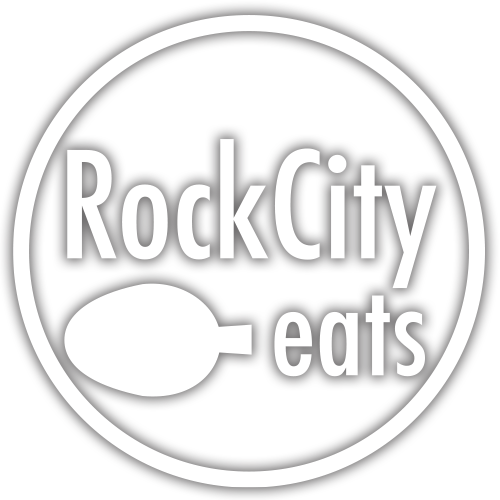I met Michael Juiliano, the man better known as Hot Dog Mike, for the first time in the summer of 2010. He had his shiny steel cart parked in an alley in downtown Little Rock and there was no one around.
Mike that day was humble, friendly, and maybe even a touch shy. Like most food service owners that I find myself going back to he seemed incredibly honored to create my lunch. I may be a sucker, but for people with that attitude I am usually honored to contribute to their business.
It seems I was not the only one.
Word spread about Mike. He had enough social media savvy to stand out from food options online. While he was not the first food cart, he was the first successful street food vendor to stand out in a city that would rather eat from one of the city’s 1,000+ fast food franchises. Because of that his food didn’t have to be fantastic, it just had to connect with you.
In fact in my many trips to the cart I never thought much about the quality of the food. Sure it was cheap bulk pack hot dogs that were then boiled and served on great value buns. Then topped with commodity sized relish, tub cream cheese, pre-cooked bacon, or can chili. I didn’t care and neither did the other 56 people in line behind me who waited in line for 30 minutes to pay $6 for a 35 cent hotdog.
It was about community. There was something fun about going out with some friends, or meeting new ones, and grabbing a hot dog. I became good friends with Kelli Marks (owner of Sweet Love bakery) waiting in line for a hot dog. I met another friend Micca Burris while grabbing a hot dog. I made several successful business deals while standing in line for a hot dog. It was never about a hot dog, and that is what made it worth going.
Much has been, and will be said about the fall from grace and ultimate demise of Hot Dog Mike. I think in the same way that the reason we went to eat was never about the hot dog, the fall was never about a hot dog either. It was about community.
In late 2012 there became a recurring pattern of trying to take advantage of the community. At that time Mike’s profile was higher than ever. Local press were falling over him, lines were longer than ever, and all felt right. Trust me, I understand the situation. You have a hot product with incredible community support and it is very hard to hold back and continue to encourage slow organic growth.
First, as well documented, Mike announced he was quitting the hot dog business and returning to New Jersey. He ended with what he hoped to be a huge “one last hot dog” event. It became well-known that Mike never even gave up his Little Rock apartment. As expected he returned about a month later and began issuing tons of press releases about his return. This is the moment the community started to turn on him.
Many people across social media, where he built his original audience, began to call the move out as a publicity stunt. Shortly after the move he announced his fund raising campaign for his new “store front”. Mike saw an opportunity to leverage the community he had left to take his business to the next level. This is where he lost most of what community he had remaining.
If his success was never about the food, but the community, the business model that Mike built was awful. By moving to the “store front”, that was essentially a storage unit with a counter, he ensured that no community aspect would ever take place over his hot dogs. That brought the focus solely on the food, which was never the strong point.
Many local food writers, almost all new to Hot Dog Mike, saw exactly what Mike was offering. A sub par food item, served out of a small area, with no community. So they naturally tore the food apart with words. The “store front” lasted less than 3 months.
So much has changed in the 3 and a half years since Mike began dragging his cart out to the streets of Little Rock. Food carts are not a novelty anymore, it will not attract the community alone. There are a few mobile food options like Southern Gormasian, Waffle Wagon, and Southern Salt that are producing food options better than many restaurants in town. Most of them actively engage with the community as well. In my experience the more you support the community the more they will support you. But serve them a few bad meals, make them feel exploited, or refuse to respond to criticism in a constructive way and they will bury your business. Just ask Mike.





